Servicemen ride on a Russian Army military armoured vehicle with the letter 'Z' on it, after Russian President Vladimir Putin authorized a military operation in eastern Ukraine, in the town of Armyansk, Crimea, Feb. 24, 2022.STRINGER/Reuters
Russia began invading Ukraine from three directions on Thursday, with air strikes targeting cities across the country and troops advancing toward Kyiv, in an attack on a scale not seen in Europe since the Second World War that left tens of thousands of Ukrainians fleeing for safety.
Kyiv’s main Boryspil International Airport was hit in Thursday morning’s first wave of attacks, and Russian paratroopers appeared to have taken control of the city’s Hostomel cargo airport by the end of Thursday after a battle that involved a squadron of Russian attack helicopters. Control of Hostomel would allow Russia to fly more troops to the edge of Kyiv, which Western officials believe is Russian President Vladimir Putin’s main target.
After encountering fierce resistance from Ukrainian forces in the Chernihiv region north of Kyiv, Russian troops stationed in allied Belarus opened a separate line of attack through the exclusion zone created by the 1986 Chernobyl nuclear disaster, raising the prospect of damage being done to the radioactive waste storage facility there.
Several explosions were heard in Kyiv early Friday as Russian forces pressed on with their assault.
Intense fighting also raged in the country’s east. Russian troops entered the city of Sumy near the border with Russia that sits on a highway leading to Kyiv from the east. The regional governor, Dmytro Zhivitsky, said Ukrainian forces fought Russian troops in the city overnight, but other Russian convoys kept rolling west toward the Ukrainian capital.

Explosions reported
Russian military incursions reported
Kyiv: Cruise and ballistic missiles reportedly hit Boryspil International Airport and military headquarters
RUSSIA
Claimed by separatists, held by Ukraine
BELARUS
Chernihiv
Kharkiv
Lviv
UKRAINE
Kramatorsk
Dnipro
Ivano-Frankivsk
Luhansk
Donetsk
Kherson
Mariupol
Odessa
ROMANIA
Held by
pro-Russian
separatists
Crimea
0
200
KM
Black Sea
*As of 7:30 a.m. ET
the globe and mail, Sources: graphic news
via Reuters, AP, AFP, BBC

Explosions reported
Russian military incursions reported
Kyiv: Cruise and ballistic missiles reportedly hit Boryspil International Airport and military headquarters
RUSSIA
BELARUS
Claimed by separatists, held by Ukraine
Chernihiv
Kharkiv
Lviv
UKRAINE
Kramatorsk
Dnipro
Ivano-Frankivsk
Luhansk
Donetsk
Kherson
MOLDOVA
Mariupol
Odessa
ROMANIA
Crimea
Held by
pro-Russian
separatists
0
200
KM
Black Sea
*As of 7:30 a.m. ET
the globe and mail, Sources: graphic news
via Reuters, AP, AFP, BBC

Russian military incursions reported
Explosions reported
Kyiv: Cruise and ballistic missiles reportedly hit Boryspil International Airport and military headquarters
BELARUS
RUSSIA
Chernihiv
Claimed by separatists, held by Ukraine
POLAND
Kharkiv
Lviv
UKRAINE
Kramatorsk
Dnipro
Ivano-Frankivsk
Luhansk
Donetsk
Kherson
MOLDOVA
Mariupol
Odessa
Held by
pro-Russian
separatists
ROMANIA
Crimea
0
200
Black Sea
KM
BULGARIA
*As of 7:30 a.m. ET
the globe and mail, Sources: graphic news via Reuters, AP, AFP, BBC
As the threat of a battle for the capital grew, tens of thousands of Kyiv residents packed their lives into cars and headed toward the relative safety of Western Ukraine, and the European Union beyond. The exodus created hours-long traffic jams that stretched to the horizon. Ukrainian President Volodymyr Zelenskyy says 137 civilians and military personnel have been killed so far in the Russian invasion of his country.
The last-minute panic was caused in part by the Ukrainian government’s strategy of playing down the threat of invasion, saying it had been hyped up by Western governments and media. Kyiv abruptly switched tactics this week, declaring a state of emergency and calling up some reservists on Wednesday. On Thursday, a dusk-till-dawn curfew was introduced in most of the country.
Evacuees stream out of town on a main highway in Kyiv on Feb. 24.ANTON SKYBA/The Globe and Mail
Russian troops also pushed into Ukraine from the east – in the direction of Ukraine’s second largest city, Kharkiv – and from the south, pushing toward the city of Kherson from Crimea, which Russia seized and illegally annexed from Ukraine eight years ago. Amphibious commandoes were also reported to have landed near the Black Sea port of Odessa.
Mr. Putin has said Russia plans to “demilitarize” Ukraine, claiming that Kyiv’s desire to seek membership in the NATO military alliance – always a remote prospect – posed a threat to his country’s security. In televised remarks just as the offensive began, Mr. Putin warned outside countries not to intervene, or it would “lead to consequences you have never seen in history.”
Why is Russia invading Ukraine? What Putin’s troops have done so far in Donbas and beyond
EU planning new sanctions against Russia for attacking Ukraine
Mr. Zelensky compared the Russian attacks to Nazi Germany’s invasions of its neighbours during the Second World War and appealed for the international community to intervene. “If you don’t help us now, if you fail to offer strong assistance to Ukraine, tomorrow the war will knock on your door.”
Speaking specifically of the Russian military thrust via Chernobyl, Mr. Zelensky said Ukrainian troops were “giving their lives so that the tragedy of 1986 will not be repeated.” He added “this is a declaration of war against the whole of Europe.” The abandoned nuclear facility was later captured by Russian troops.
Ukraine claimed to have shot down four Russian attack helicopters in fighting near Kyiv, a statement that couldn’t be independently verified. At least 40 Ukrainian soldiers were reportedly killed in Thursday’s fighting, plus an unspecified number who died when an Antonov military transport plane was shot down.
Russia’s Defence Ministry said it had destroyed 74 Ukrainian military facilities, including 11 air fields. Russia said it had lost one attack jet.
Within hours of the attacks, lines and shortages began to form at gas stations, banking machines and currency exchange shops across the country. When Liudmila Pirolt tried to buy groceries Thursday in Izmail, near the Romanian border, she was told “no bread.” Nearby gas stations, too, had gone dry. “So no petrol, no food and people are lined up at banks,” she said.
As she and her husband, Thomas, first heard about the invasion, they both began to physically tremble. Within hours, they had removed the rear seat from their car and packed it with clothes, pots and pans. They left behind everything else, including the fig, pomegranate and apricot trees they intended to plant at the home they spent the past two years renovating.
Maks Kurochka went to bed Wednesday ready to celebrate his son’s one-year birthday at a rented restaurant Friday. By Thursday afternoon, he had loaded his son into his car with a bag of toys and no real plan for how to move his family nearly 3,500 kilometres to the west coast of Norway, where he must report for work in less than a week.
“Who knows. Nobody knows anything,” he said. “But what we can do? This morning changed everything.”
Alexandra, 25, and Christian, 32, debate whether to leave Kyiv and join their family in Cherkasy, on Feb. 24, 2022.ANTON SKYBA/The Globe and Mail
As the Russian forces made rapid gains, Alexandra and Christian stood in front of Kyiv’s main railway station, torn over whether to board the next train southeast to be with their families, or to stay in Kyiv and stand their ground.
“We have so much doubt about what to do,” said Alexandra, a 25-year-old theatre actress who asked that her family name not be used out of fear that Kyiv and Ukraine could soon be occupied by a hostile force. “Should we stay and fight for Kyiv, or should we be with our parents?” she asked aloud as she stood outside the bustling train station on Thursday with the couple’s cat, Plonya, strapped to her in a clear plastic backpack.
Hours after a second wave of airstrikes had struck targets around the city, train tickets out in any direction were a scarce commodity. After a few minutes of debating themselves out loud, Alexandra and Christian seemed to reach a conclusion. “We want to be close to those we love in this time that is very scary. If we die, we will all die together,” Alexandra said.
Viktor Alekseyevich.ANTON SKYBA/The Globe and Mail
Others at the station were clutching the unluckiest tickets of all – seats on trains headed east, and toward the rapidly changing frontline there. “Of course we’re scared, everyone is scared,” said Elizaveta, a 19-year-old reservist who received her call-up notice that morning. She didn’t know exactly where she was headed because her regular training base in the southeastern city of Zaporizhia had already been hit by air strikes.
In central Kyiv there were long lines at banks but otherwise few pedestrians or cars on the streets. On the city’s main Independence Square – site of two pro-Western revolutions earlier this century – a handful of people wandered about early Thursday, between the day’s first and second waves of Russian attacks.
“Putin’s an aggressor,” said Viktor Alexeyevich, a 52-year-old insurance manager who was woken at 6 a.m. local time by the sound of explosions. He said he was trying to take his granddaughter out of the city. After that, he said, he planned to return to defend his home. “Today’s Ukraine doesn’t want to live under Putin’s plan.”
Russian forces attacked Ukraine early Thursday with some of their movements caught on video. A convoy of armoured vehicles drove into Ukraine from Belarus, Russian forces moved to take control of the Chernobyl nuclear power plant and military helicopters flew near a major airport north of Kyiv.
The Globe and Mail
With reports from Adrian Morrow and files from The Associated Press
Our Morning Update and Evening Update newsletters are written by Globe editors, giving you a concise summary of the day’s most important headlines. Sign up today.
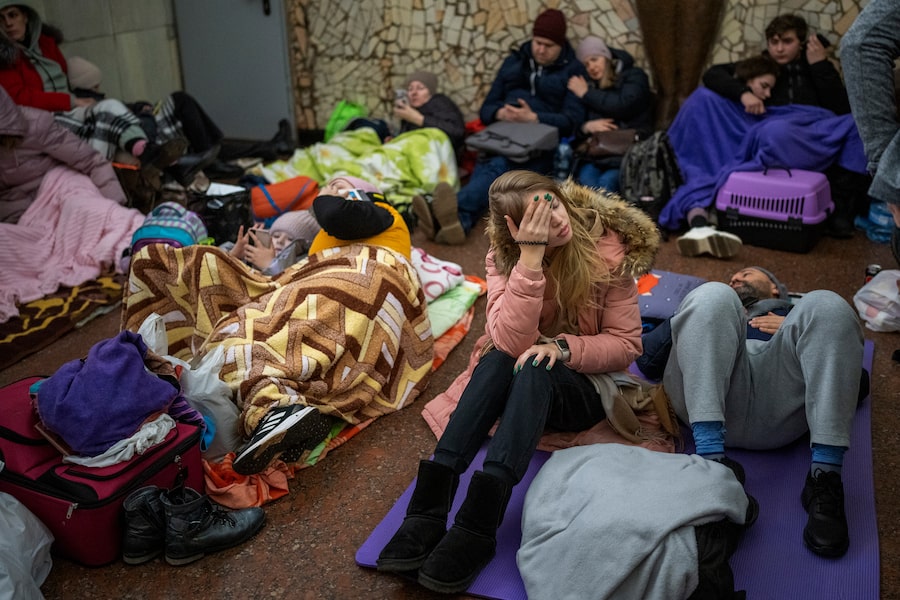
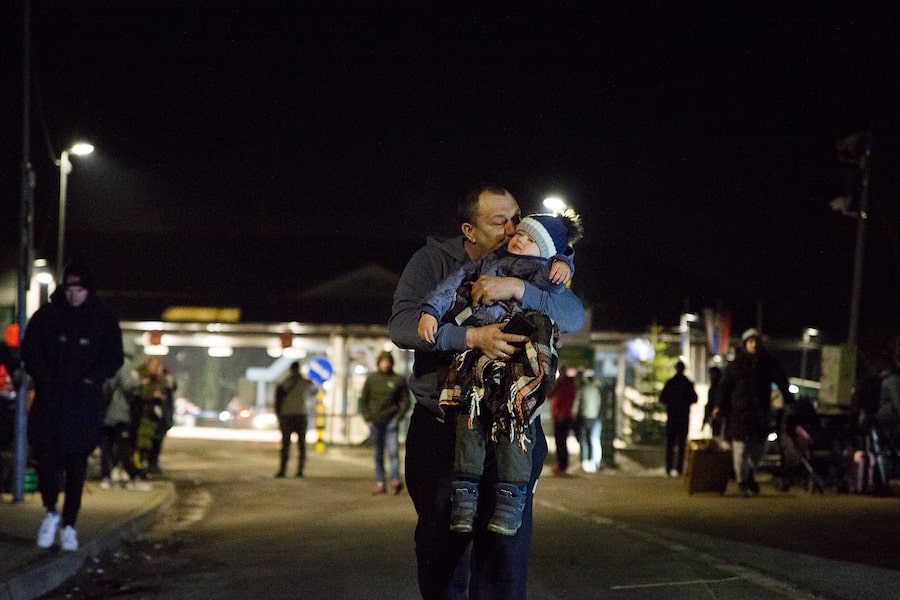
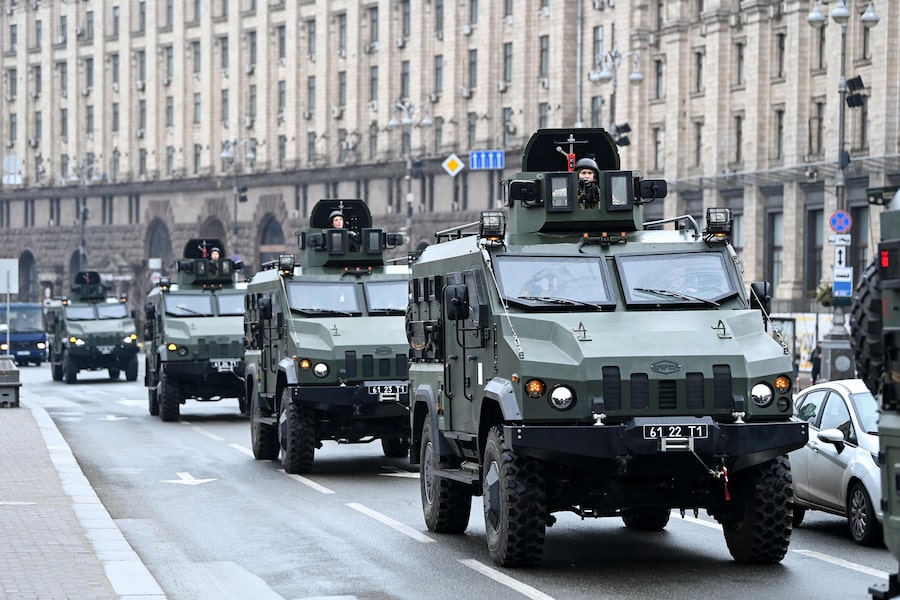
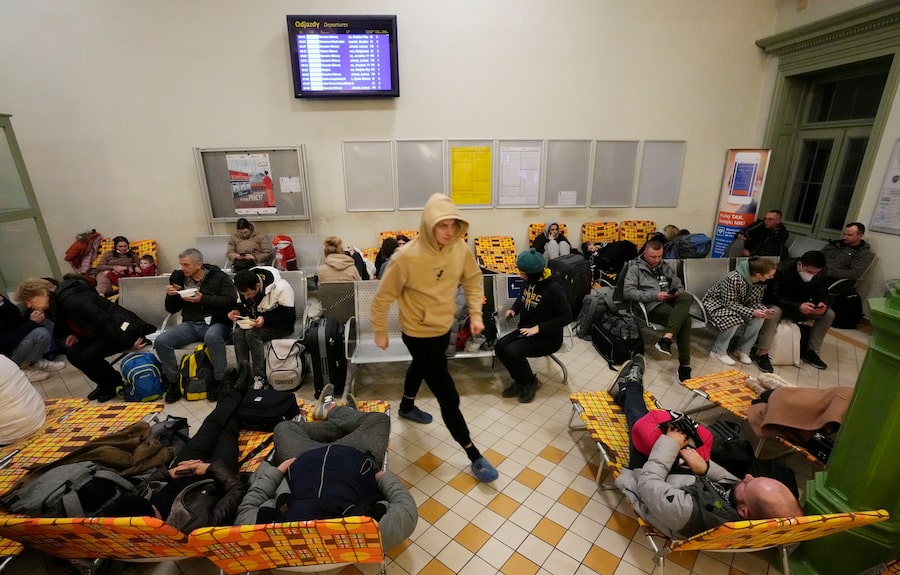
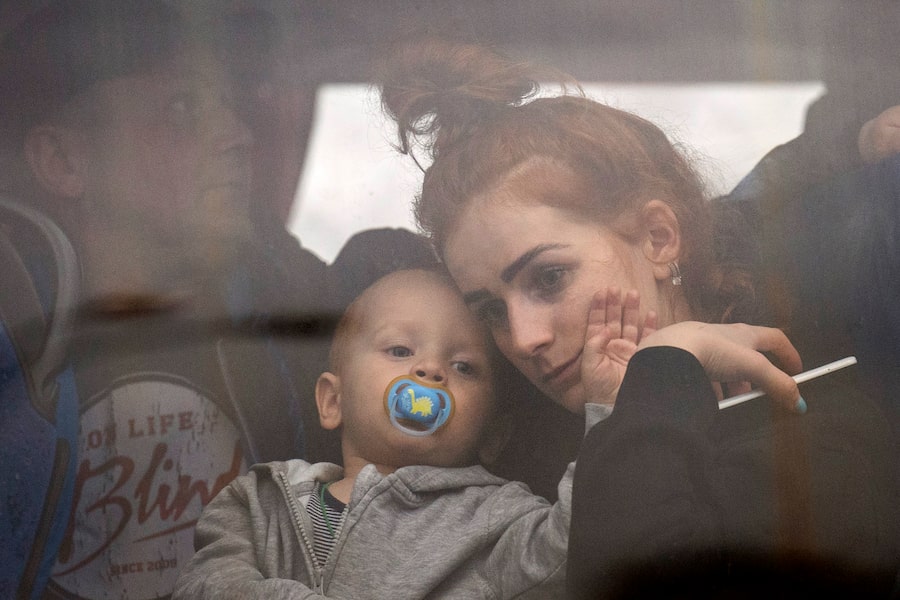


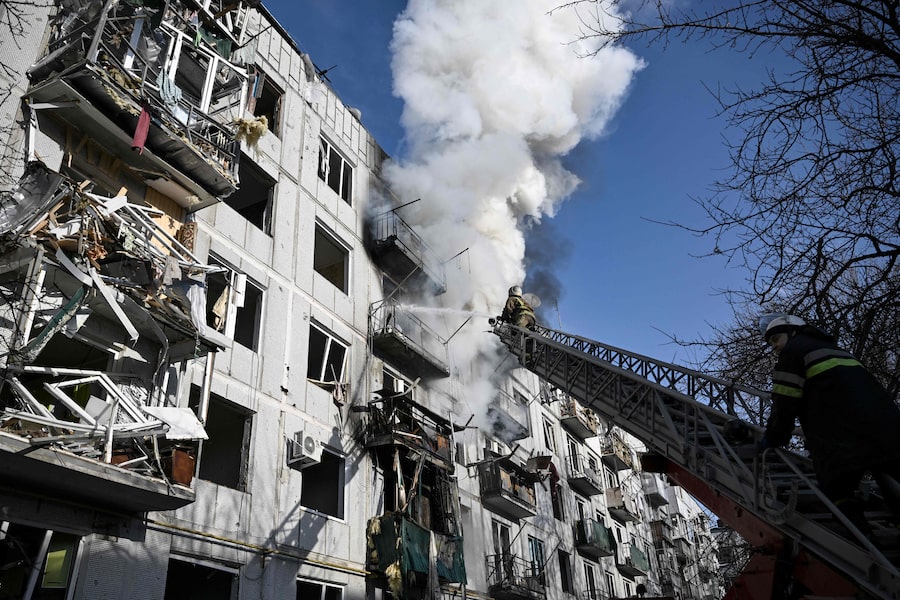
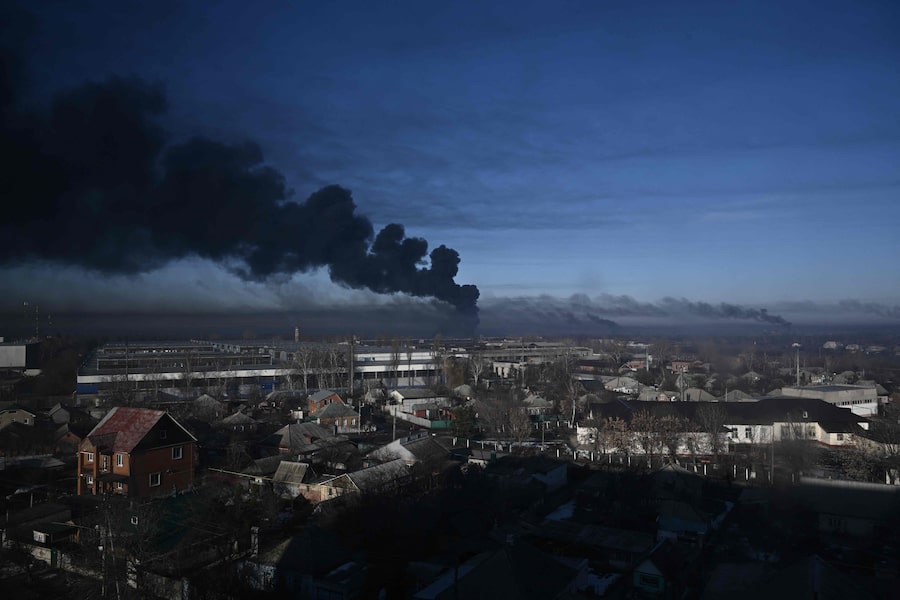
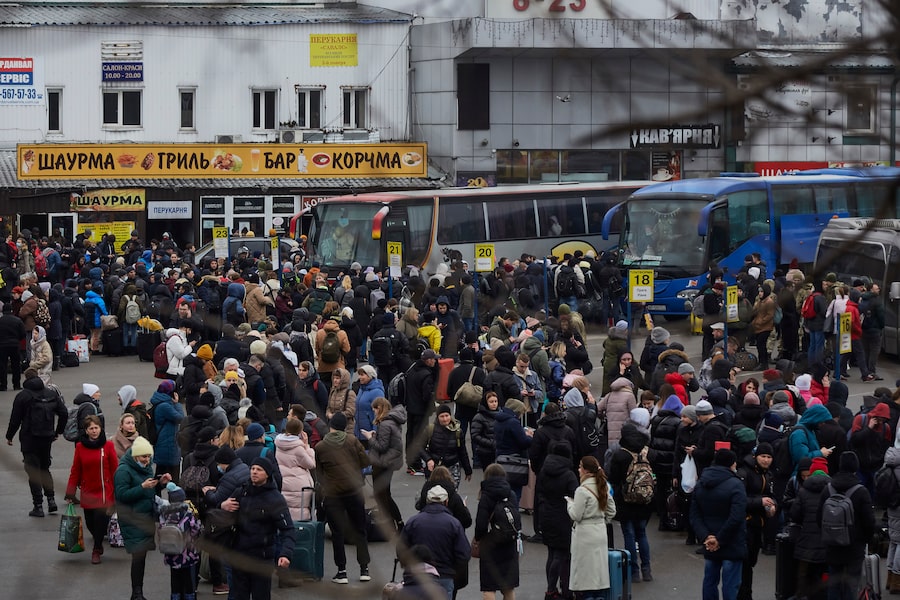
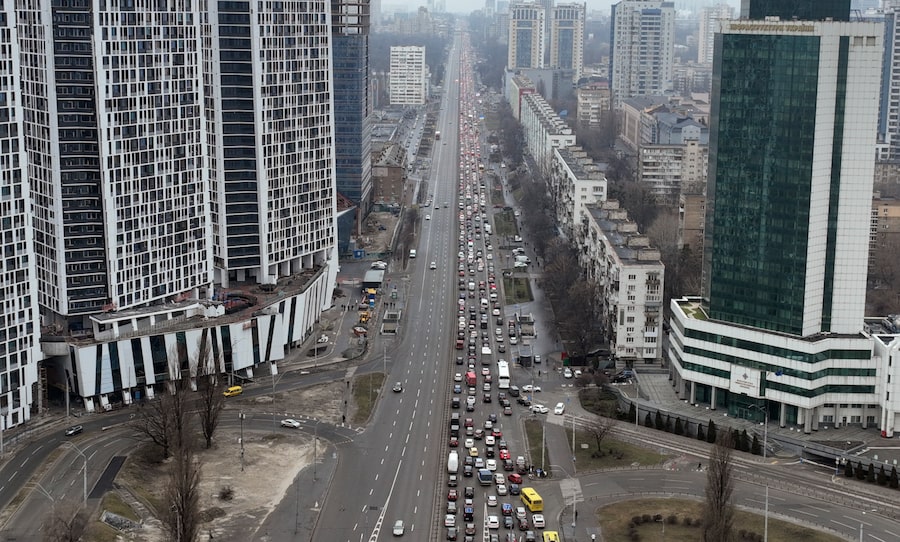
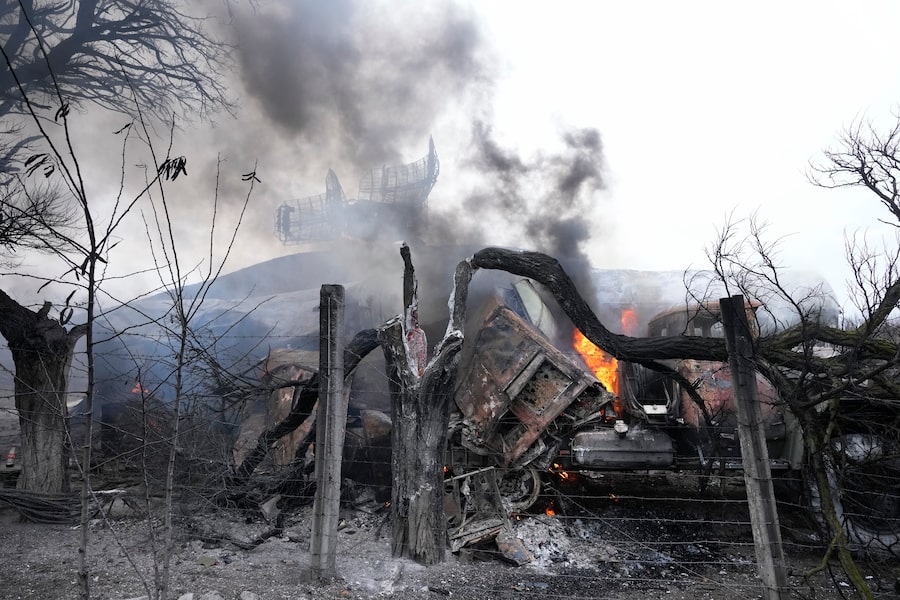
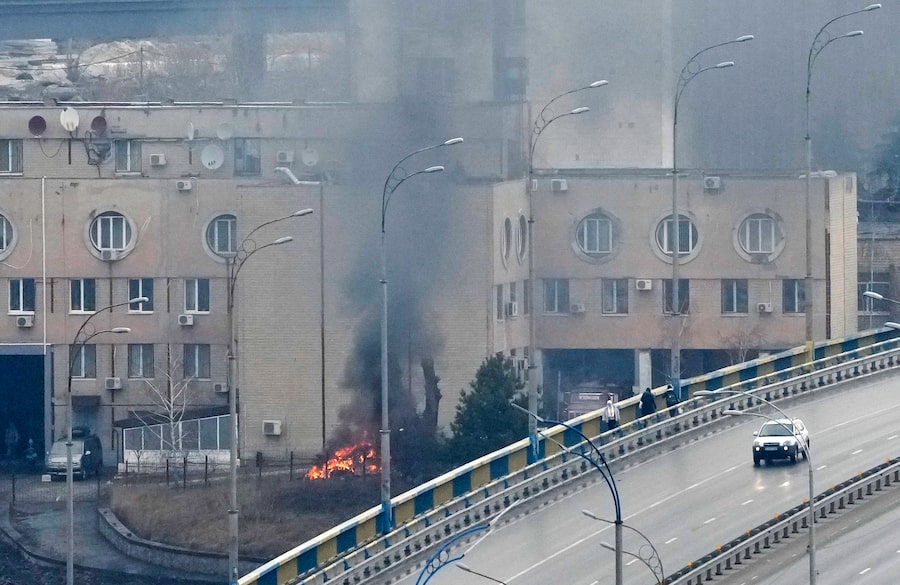

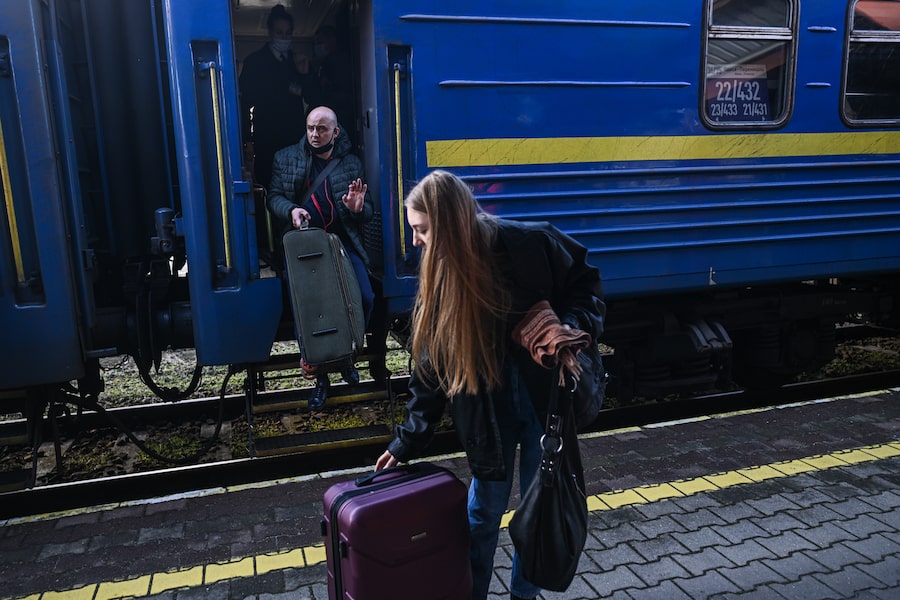


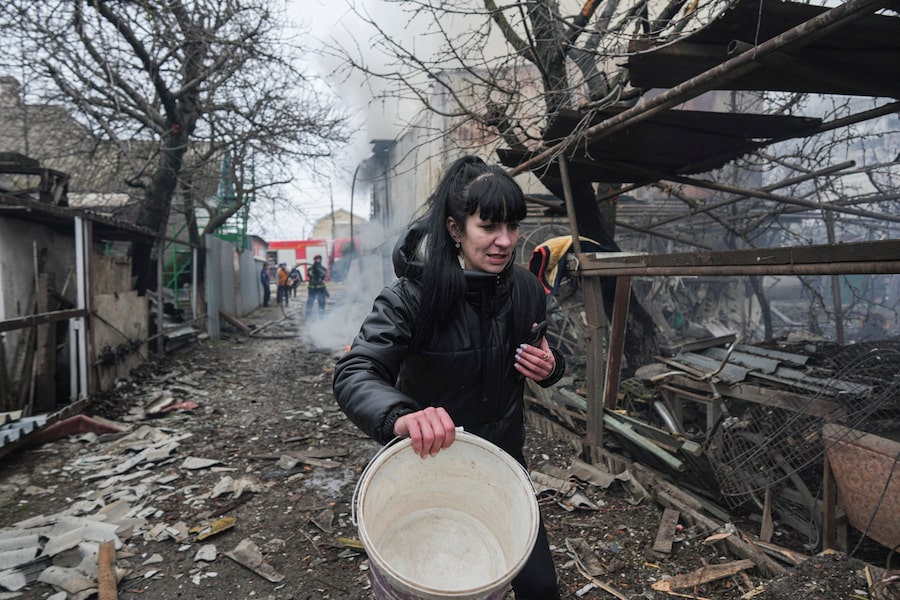
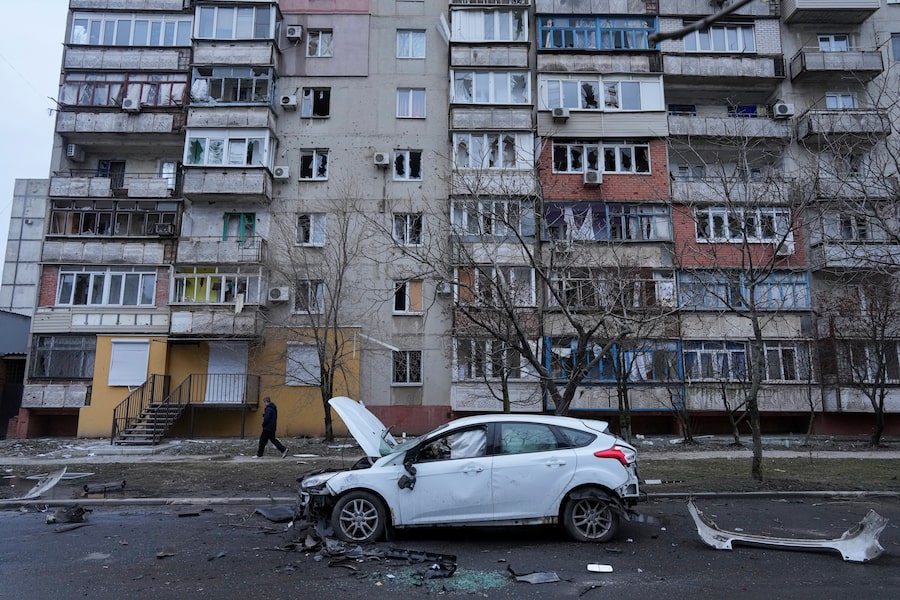
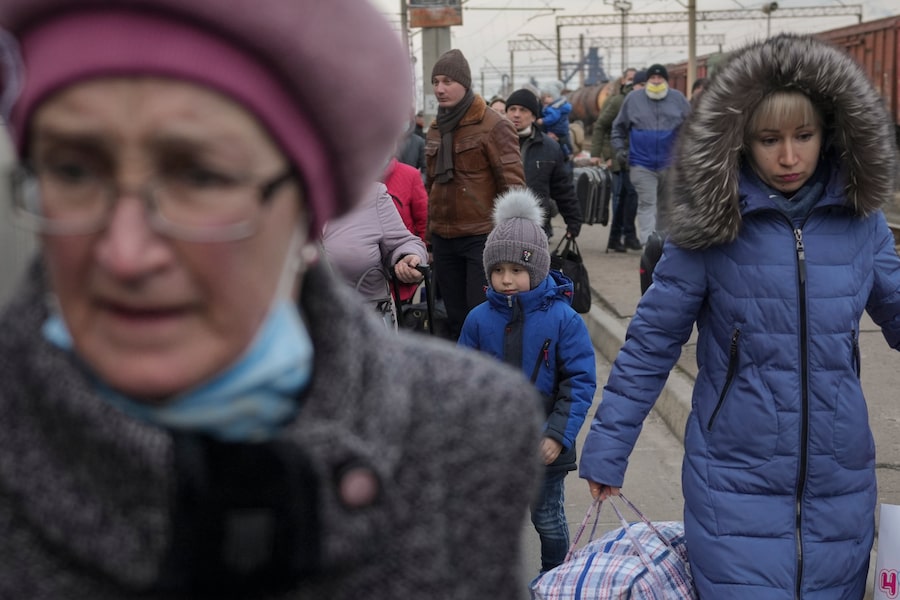
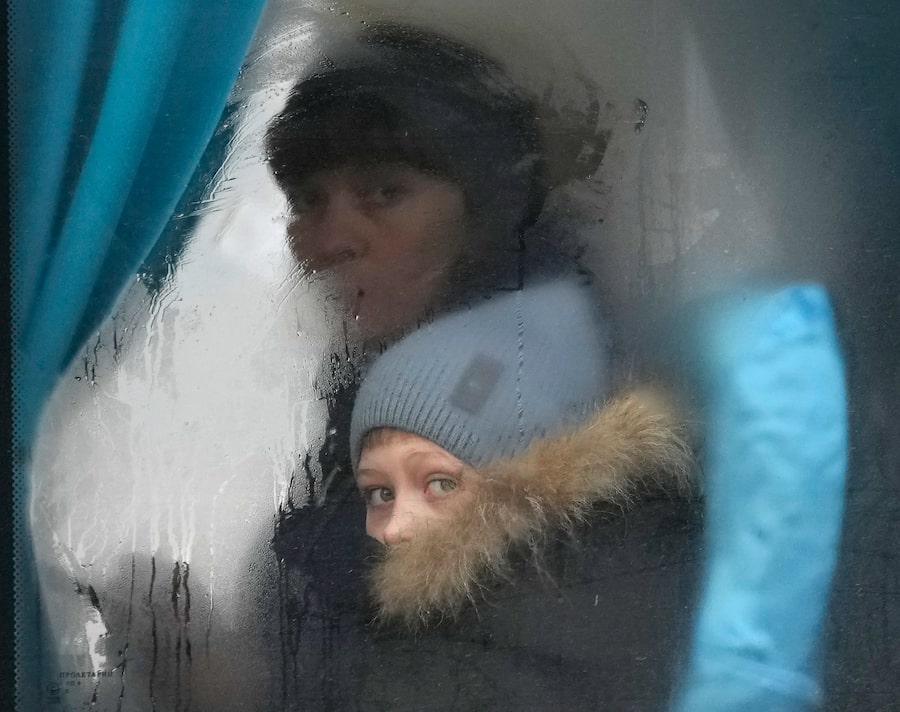
 Mark MacKinnon
Mark MacKinnon Nathan VanderKlippe
Nathan VanderKlippe